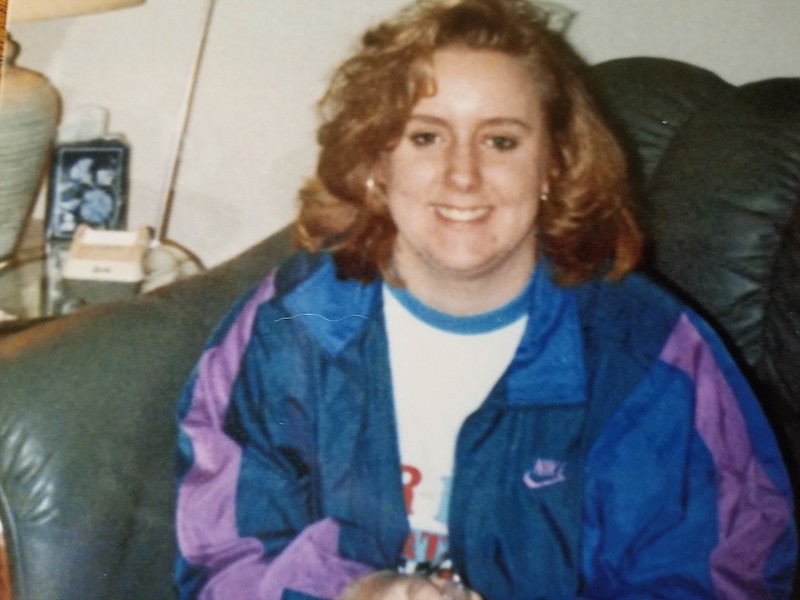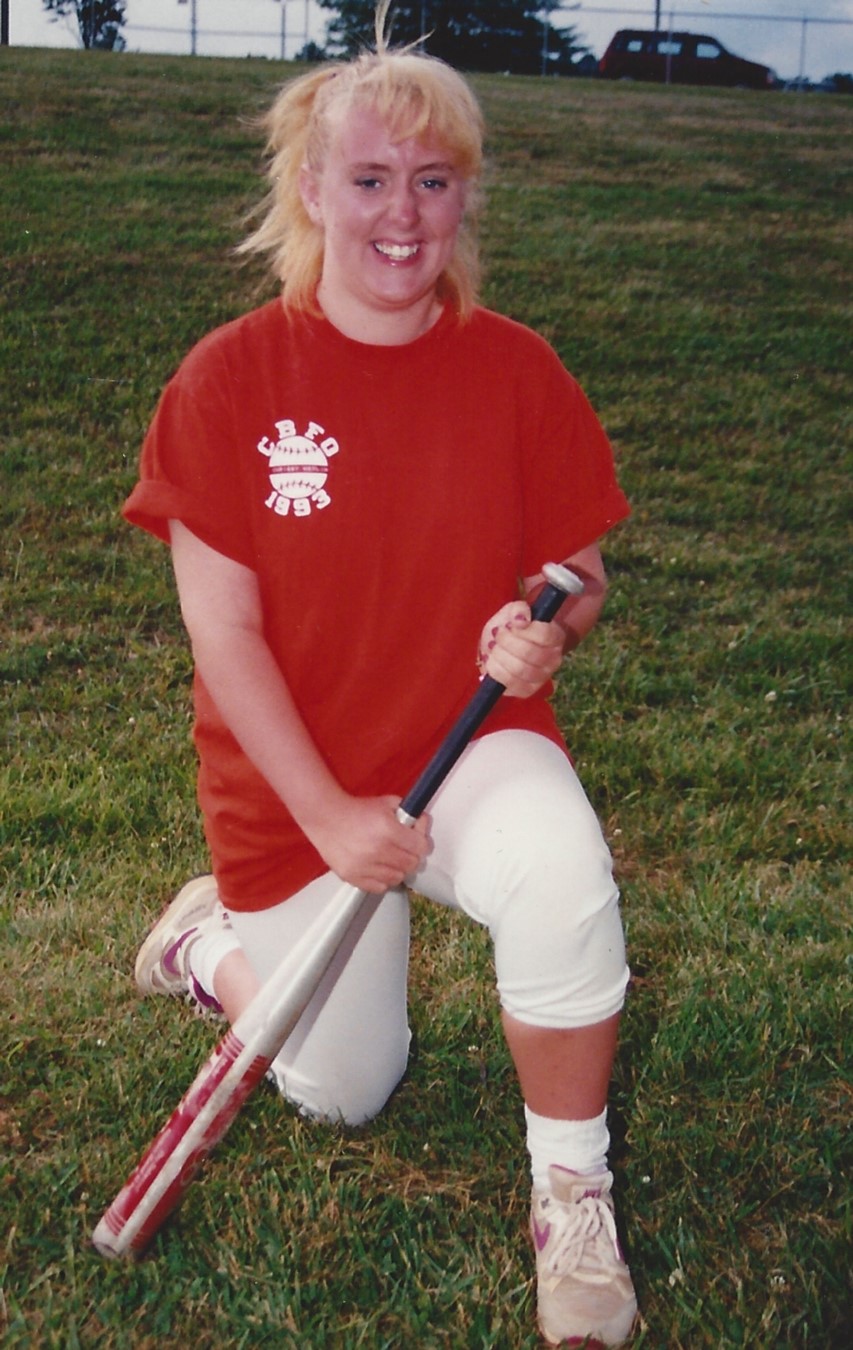DALTON, Ga. - The last time her mother saw her, Christine Medlin couldn't move her left hand. It stuck out from her arm at a 90-degree angle, as though her wrist was flexed. She couldn't move her fingers either.
She was in the Hamilton County Medical Center emergency room in 2012 with a cut running from her wrist to her elbow. A knife's blade had sliced tendons and ligaments. A doctor needed to perform surgery, but Medlin legally couldn't sign the necessary waiver. She had tested positive for cocaine, her mother, Susan Medlin, said.
Privately, Susan Medlin said, Christine explained what happened. Her girlfriend of 11 years, Amy Gale Duckett, attacked her during an argument. They were both addicts, Susan Medlin said.
But when doctors and police officers asked, Christine Medlin simply said she slipped. She was cutting carpet and lost control of her knife. They didn't believe her.
"All she kept saying was that Amy loved her," Susan Medlin said.
Christine had been on a destructive path since she was a teenager. Doctors diagnosed her with bipolar disorder. Her drug use elevated from marijuana to methamphetamine and opioids. She could get clean for months at a time, until she got back together with Duckett.
She looked like she hadn't bathed in days. She had lost teeth.
"If you stay with her," Susan Medlin said, "she will end up killing you."
___
Though they never saw each other again, Susan and Christine Medlin frequently talked on the phone. Susan established a path for her: go to a rehab program, go to a halfway house, stay clean. She said she would find a home for Christine Medlin once she took positive steps.
But the calls stopped around January 2017. Christine Medlin, then 39, was living with Duckett in a home off Novella Drive in Dalton. Susan Medlin said Duckett told different stories about her daughter's location. She had finally returned to rehab, supposedly. Or she had simply walked away one day. Then Duckett mentioned something about a drug deal gone bad.
"Basically torturing me," Susan Medlin said.
After a couple months, she believed her daughter was dead and filed a missing persons report with the Whitfield County Sheriff's Office. On the evening of May 1 this year, she said, Duckett called her again.
Duckett rambled about people following her, tracking her. She claimed she had recently seen Christine Medlin. Then she told Susan Medlin she knew where Christine was. She could take her there.
The next morning, Susan Medlin and Scott Woodall, a private investigator, met Duckett outside a Kangaroo Express in Chatsworth, Georgia. Woodall said they drove around for an hour, his recorder running the whole time, as Duckett told them her story. She seemed high.
Susan Medlin and Woodall gave this account to the Times Free Press: Christine Medlin overdosed after swallowing several pills in her Dalton home in January 2017. Duckett, who was high, tried to make her throw up. But Duckett passed out. When she came to, she realized Christine Medlin was dead.
The body lay in their bed for three days before Duckett called her 20-year-old son, Kurt Duckett. She and Kurt wrapped Christine Medlin in multiple plastic bags, taped together. They dragged her body to the woods behind the home, dug a 2-foot-deep hole and buried her.
After telling the story, Susan Medlin and Woodall said Duckett brought them to the shallow grave. Investigator with the Whitfield County Sheriff's Office arrived soon after. (Susan Medlin said she told the investigators to stay out of her meeting with Duckett, worried she would clam up around them.)
On May 3, the sheriff's office charged Amy Duckett with concealing the death of another person, making false statements and hindering law enforcement. On Thursday, the sheriff's office arrested Kurt Duckett on a charge of concealing a death.
"Both Amy and Kurt Duckett are cooperating," Whitfield County Sheriff Scott Chitwood said Friday in a news release.
Neither has been charged with killing Christine Medlin. Woodall said any further charges would likely hinge on the results of an autopsy. Susan Medlin said she is not sure whether to believe Amy Duckett's account.
Christine Medlin's life and death left her family feeling helpless. Medications helped treat her mental illness, but she refused to believe she needed them. The family sent her to rehab "dozens of times," Susan Medlin said, but Christine couldn't stay sober. They offered to help again in the months before her death. Christine told them she was clean.
Susan Medlin didn't believe her daughter. But she couldn't do anything about it.
"We're taking these people and we're turning them out in the street," she said. "It's devastating our society because they need help."
___
Christine Medlin's trouble started as a teenager. Growing up in Knoxville, she was a gifted softball player, and her family wondered if she could one day play at the University of Tennessee. Then she quit the sport, seemingly out of nowhere. She started sneaking out at night and smoking marijuana.
At 15, a doctor diagnosed her with bipolar disorder. By 17, she was an addict.
She was in and out of rehab, Susan Medlin said, and disappeared for 1-1/2 days after she gave birth to twin girls. She hawked the family's DVDs, tools and jewelry at pawn shops.
"If it was worth anything," Susan Medlin said, "it was gone."
In 2002, Susan Medlin took out theft warrants against her daughter. If rehab programs didn't work, she figured an arrest might force her to get clean. Christine Medlin then moved to Dalton. Her mother isn't sure why she went there, exactly. With the warrant hanging over Christine Medlin, her mother imagines she wanted to escape across a state line.
She met Duckett at another treatment center after she got pregnant again. The two moved in together, and Susan Medlin said their addictions fed off each other. They circulated through doctors and local pharmacies.
Though too late for Christine Medlin, state lawmakers have tried clamping down on doctor shopping. Last year, the Georgia General Assembly passed a law requiring doctors and pharmacists to use the Prescription Drug Monitoring Program, a statewide database.
Pharmacists began entering patients' prescriptions into the database last July. At the beginning of this year, all doctors had to register for the program. Beginning next month, they will have to check the database before prescribing opioids, cocaine derivatives or benzodiazepines (such as Valium or Xanax).
Some companies also have begun on their own to limit the drugs they dispense said Laurisa Barthen, outreach and communications manager for the Georgia Council on Substance Abuse. Earlier this year, CVS and Walmart announced policies to limit the amount of opioids they will provide. For a new prescription in an acute case, for example, pharmacists for both companies will only dispense enough drugs to last one week.
Susan Medlin wishes there was a systematic way to get her daughter help for her mental illness. But over decades, the country's laws have moved away from any sort of forced treatment. The issue is rooted in civil rights.
"You're literally taking someone's rights away from them," Mental Health America of Georgia Executive Director Jewell Gooding said, of forcing someone to get help. "It's almost dehumanizing them. It's up to an individual's perspective to make the choices they need to make."
There is an exception through the court system, if a family member can prove someone is suicidal or homicidal. But Christine Medlin never seemed like the type of person who would intentionally hurt herself, her mother said.
Still, she refused help. In the summer of 2016, Susan Medlin made her last plea. She arranged for a counselor from a center in Nevada to fly out, pick up Christine Medlin and take her back across the country. The program was going to be intense. She would stay for three years.
But days before the counselor was scheduled to arrive, Christine Medlin called off the plan.
"It's hard to make sense," Susan Medlin said. "She said she was OK; she wasn't using; she was happy. You have to want to get help."
Contact staff writer Tyler Jett at 423-757-6476 or tjett@timesfreepress.com. Follow him on Twitter @LetsJett.


